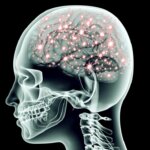A journal article released in Nature Metabolism has uncovered certain brain regions associated with the intoxicating effects of alcohol consumption.
According to researchers at the University of Maryland, the premier effects of excessive alcohol use, like sedation, slurred speech, and poor coordination, may be caused by factors originating within the brain, as opposed to the liver, as previously known.
“Here, we show that aldehyde dehydrogenase 2 ALDH2 is expressed in astrocytes in the mouse cerebellum and that ethanol metabolism by astrocytic ALDH2 mediates behavioural effects associated with ethanol intoxication,” wrote Shiyun Jin and his colleagues in the findings.
“We show that ALDH2 is expressed in astrocytes in specific brain regions and that astrocytic, but not hepatocytic, ALDH2 is required to produce ethanol-derived acetate in the mouse cerebellum.”
The results concluded: “Our data indicate that astrocytic ALDH2 is an important, but previously under-recognized, target in the brain to alter alcohol pharmacokinetics and potentially treat alcohol use disorder.”
The findings aim to open a pathway to future drug treatments for alcoholism.


